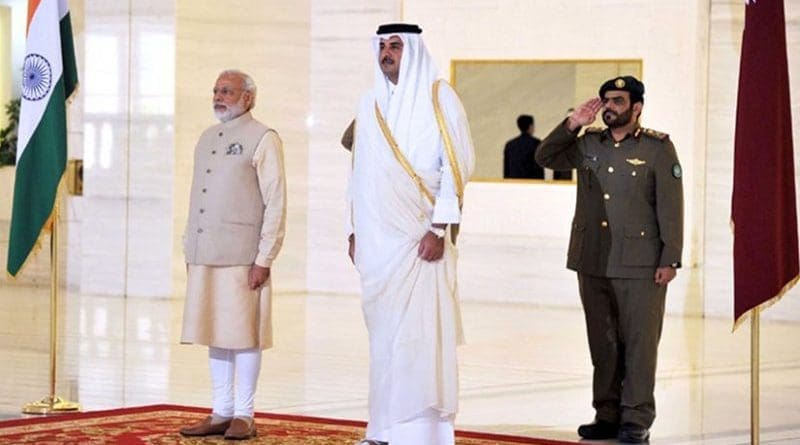Navigating Diplomatic Quagmire: India’s Struggle To Save Naval Personnel Sentenced To Death In Qatar – OpEd
By Khalid Iqbal
India, a nation known for its diplomatic finesse, is facing an unprecedented challenge as it endeavors to respond to the Qatari court’s recent imposition of death sentences on eight retired Indian naval personnel.
These individuals, detained in Doha in August 2022, were reportedly working on overseeing the introduction of Italian U212 stealth submarines into the Qatari Emiri Naval Force on behalf of an Omani private defense company, Dahra. The Qatari court’s decision has not only sent shockwaves through the Indian government but has also ignited concerns about the potential strain on India-Qatar relations, a crucial partnership characterized by significant trade and a large Indian expatriate workforce in Qatar.
The eight Indian naval personnel were detained on suspicion of espionage, an accusation that has yet to be substantiated with specific details. The lack of transparency surrounding the charges has fueled speculation that the men were accused of spying for a foreign country, adding complexity to an already delicate situation. Among the individuals facing death is Cmdr. Purnendu Tiwari, a highly decorated officer who received the highest honor for overseas Indians in 2019.
Family members of the detained officers are growing increasingly desperate, urging Prime Minister Narendra Modi to personally intervene. Expressing dissatisfaction with the Foreign Ministry’s assurances, they emphasize the urgency of the situation, highlighting the imminent danger to the lives of their loved ones. In response, External Affairs Minister S. Jaishankar has pledged that the Indian government will leave no stone unturned in its efforts to secure the release of the eight nationals. The ministry has expressed deep shock at the death penalty verdict and is actively exploring all available legal options.
Strained India-Qatar Relations
Beyond the immediate humanitarian concerns, the case has the potential to strain India-Qatar relations, which encompass both substantial trade and a considerable Indian expatriate community in the Middle Eastern state—currently estimated at 700,000 individuals. This incident comes at a critical juncture for India, with national elections looming on the horizon. Complicating matters further, it follows a recent diplomatic spat with Canada, creating a challenging backdrop for Indian diplomacy.
India’s significant economic ties with Qatar, amounting to an annual trade value of around $15 billion, offer potential leverage in negotiations. Suggestions include utilizing these trade relations or leveraging India’s influence in the region to negotiate the release of the detained naval personnel. However, negotiations are expected to be complex, given the geopolitical considerations in the wake of the Israel-Hamas conflict.
Qatar’s strong support for Palestinian rights and its hosting of a Hamas political office have long been points of contention in the region. Recent reports suggest that Qatar may be open to reconsidering its stance following an October 7 Hamas attack. However, with India historically supporting Israeli state, navigating the diplomatic landscape becomes increasingly intricate.
In a highly charged geopolitical atmosphere, India’s options are perceived to be limited. The ongoing tensions in the Middle East, coupled with India’s historical stance on Israel, may complicate diplomatic negotiations. The case has faced criticism domestically, with Modi’s opponents blaming the government for not securing the release of the officers earlier.
Conclusion
As India navigates this diplomatic challenge, the fate of the eight naval personnel remains uncertain. The government faces the complex task of balancing international relations, trade interests, and domestic expectations in its efforts to secure the release of its citizens facing the death penalty in Qatar. The coming days will undoubtedly test India’s diplomatic prowess and shed light on the intricacies of navigating a challenging international scenario while safeguarding its citizens abroad.

